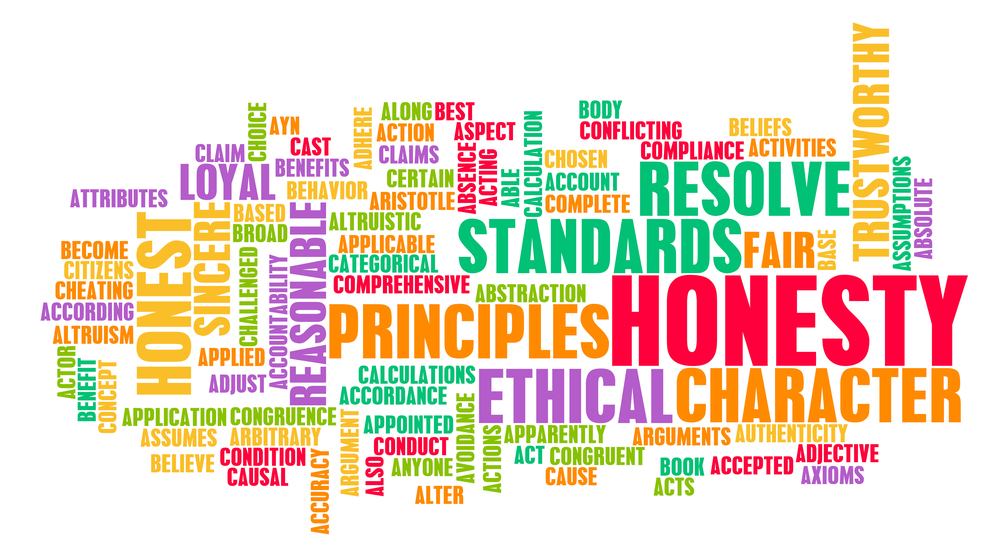Good Character is Key
With the first Republican candidate debate, the issues of presidential election politics became more pressing. Debate number two will intensify the voters’ dilemma. I know I am not alone when I say that I can hardly bring myself to properly prepare as a citizen because of the contentious and disappointing nature of politics in recent years. Yet, I need to. As I contemplate another election season, the question for me and I think for every voter is simple on the surface. “Who is the best candidate?” But in this era of misinformation and constant spin on everything, making that judgement seems anything but simple!
Media-managed selection of candidates can be alluring and deceiving.
As voters, we need some criteria to help us look past the parroted talking points, the inevitable mudslinging and the constant real-issue avoidance. However, I am very afraid that most voters judge far too shallowly. Camera image, bravado, self-assertion, and smooth talk by picture-ready candidates impress people far more than genuine credentials and honest communication. As constant consumers of media, we are so used to judging actors on their acting, it doesn’t seem to occur to us to ask whether the candidate is genuinely portraying him/herself in front of that camera. Hence TV and media personalities can get elected based on an impressive media persona which may be quite different from who they really are. And we have had a constant parade of such legislators who were quickly revealed to have no integrity and be quite undeserving of their office.
The real threat comes from bad character.
What we all need to remember is that citizens are not protected simply by having many police on the beat or strong armies and navies, but rather by the good moral character of their neighbors and the leaders who are over them all! Bad neighbors and bad leaders both make citizens afraid! John Maxwell, the expert on leadership today, teaches that the number one can’t-do-without characteristic of leaders is good moral character.
“Character makes trust possible and trust is the foundation of leadership.”
How can we recognize good character in political leaders?
Drawing on biblical wisdom, we can flesh this out with particulars. For example, especially disqualifying characteristics include greed, 2 lawlessness,3 arrogance,4 and lack of compassion for the oppressed.5 All these traits show self-centeredness and predict a decrease in genuine concern for ordinary citizens. They also greatly increase the likelihood of misuse of power.
Chief among favorable characteristics is a demonstrated fear of God.6 The person with this honorable trait believes they are accountable to God and therefore they desire to give a good accounting of their deeds when their own Day7 arrives. The person who fears God is in the process of learning how to live according to the teachings of God. For Christians, instructions of Jesus, such as “Love one another,”8 and “Do to others as you would have them do to you,”9 are in their mind. Such a one is more likely to value personal integrity too. They will likely develop a consistent reputation for value-driven and principle-driven decisions. These traits increase the likelihood that the leader will be genuinely considerate of citizens and benevolent in the use of power.
This is only the beginning
Certainly there are other important considerations in the presidential race. For example, the person chosen must be electable, not just by the party faithful, but by the country as a whole. I’m interested in how the person polls beyond the party faithful? And a candidate for presidential leadership must have the ability to draw and hold talented and wise helpers and advisors. How are they handling their campaign team, for example, because leading leaders is the stuff of presidential life.
Yet, despite all these complexities, good character remains the bottom line.
So I consider it my first job as a voter to try to learn about the character of the candidates. I am interested in their positions on issues too, of course. But character is first! When I read or watch news, when I view a debate, the most important information that I am seeking concerns the character of the candidates. Character is key to everything!
- The 21 Irrefutable Laws of Leadership, p. 9, Thomas Nelson Inc. 2012 ↩︎
- “The love of money is a root of all kinds of evil” 1 Timothy 6:10 ↩︎
- “When the wicked thrive, so does sin.” Prov. 29:16 ↩︎
- The biblical Psalmist describes the wicked this way. “They scoff, and speak with malice; with arrogance they threaten oppression.” Psalm 73:8 ↩︎
- “The righteous care about justice for the poor, but the wicked have no such concern.” Prov. 29:7 ↩︎
- “The fear of the Lord is the beginning of wisdom.” Psalm 110:10
“Through the fear of the Lord evil is avoided.” Prov. 16:6 ↩︎ - “”Each of us will give an account of ourselves to God.” Rom. 14:12 ↩︎
- John 13:34 ↩︎
- Luke 6:31 ↩︎
